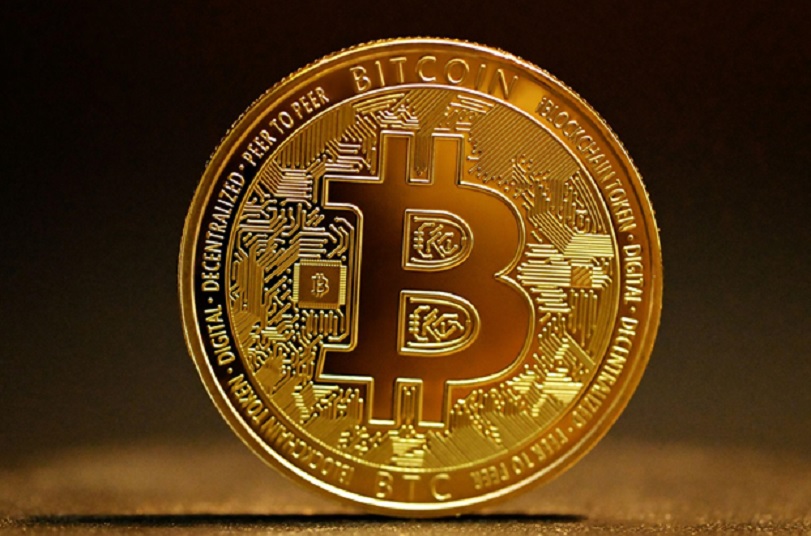Economy
Experts Foresee Bitcoin Reaching $115,733 in 2024, $250,000 in 2025

The recent uptick in the price of Bitcoin has continued to attract interest in the digital currency, with experts at CoinLedger projecting that it could sell for $115,000 this year.
Bitcoin mining is a crucial function in the production of new coins through the verification of payments. This system means that ‘miners’ are essentially getting paid for their work as auditors. They are verifying the legitimacy of Bitcoin transactions and being rewarded for it with Bitcoin.
However, every time 210,000 blocks are mined the block reward for mining is halved. The first halving event occurred in 2012 when the reward of 50 BTC was reduced to 25 BTC. This is a key mechanism to control the supply of new Bitcoin entering circulation https://eralmonumapp.app/.
In the past, this has also led to positive price action, as limiting the supply and controlling inflation can benefit the ecosystem.
A new study by crypto tax experts at CoinLedger has analysed the past three halvings to see what price Bitcoin would be if it followed the past patterns. For this research, CoinLedger has based figures on if Bitcoin is at its most recent high of $69,000 when it halves at some point in April.
The data took the average price increase from the 2016 and 2020 halvings to calculate the price of Bitcoin.
3 months post-halving
In 2016 the price on the halving day was $650; after three months, this increased to $722, a 10.99% increase.
In 2020, the price rose from $8,572 to $11,393 within three months, an increase of 32.91%.
The average increase across these two events is 21.95%, which would mean that in 2024, three months after Bitcoin halves, the price could rise to $84,145 if it were to follow historical patterns (based on a price of $69,000 at the time of halving).
6 months post-halving
In 2016, six months after the halving the price rose further to $986, which is an increase of 51.57% from the post-halving price of $650.
In 2020, the price of Bitcoin increased to $15,702 after six months, which is a rise of 83.17%.
Based on the average figures from above this is equal to an average increase of 67.73% after six months. If a similar pattern were to follow, then Bitcoin could rise to a high of $115,733. Although this seems like a high estimation Bitcoin has shocked people before in past bull runs.
12 months post-halving
One year after the halving has seen eye-watering price action in the past. In 2012, after the first halving, the price rose from $12 to $1,003 over a year, an 8,000% increase. The research didn’t include 2012 in the averages, as at the current price and market cap it would be almost impossible to see increases of this nature.
In 2016, the price after a year was $2,502, an increase of 284%. In 2020, the price of a Bitcoin was $56,764, which was a 562% increase from the pre-halving price of $8,572.
This is an average of 423% a year after a halving event. This would give Bitcoin a price of $361,152. It is extremely unlikely that Bitcoin will reach this figure within 12 months, however, many analysts have figures of $150,000 to $250,000 in 2025.
A spokesperson from CoinLedger commented: “Bitcoin has performed well recently very early on into this cycle. This has got many people excited about how high Bitcoin could rise in the coming year and the halving only adds to this, as history has proven that halving events can positively impact the price.
“Time will tell which Bitcoin price predictions for the 2024 halving come true, if any. As always, we recommend doing your own research, staying on top of the latest industry happenings, and never investing more money than you can afford to lose!”
Economy
LIRS Urges Taxpayers to File Annual Returns Ahead of Deadline

By Modupe Gbadeyanka
All individual taxpayers in Lagos State have been advised to file their annual tax returns ahead of the March 31 deadline.
This appeal was made by the Lagos State Internal Revenue Service (LIRS) in a statement issued by its Head of Corporate Communications, Mrs Monsurat Amasa-Oyelude.
The notice quoted the chairman of LIRS, Mr Ayodele Subair, as saying that timely filing remains both a constitutional and statutory obligation as well as a civic responsibility.
The statutory filing requirement applies to all taxable persons, including self-employed individuals, business owners, professionals, persons in the informal sector, and employees under the Pay-As-You-Earn (PAYE) scheme.
In accordance with Section 24(f) of the 1999 Constitution of the Federal Republic of Nigeria, Sections 13 &14(3) of the Nigeria Tax Administration Act 2025 (NTAA), every individual with taxable income is required to submit a true and correct return of total income from all sources for the preceding year (January 1 to December 31, 2025) within 90 days of the commencement of a new assessment year.
“Filing of annual tax returns is not optional. It is a legal requirement under the Nigeria Tax Administration Act 2025. We encourage all Lagos residents earning taxable income to file early and accurately.
“Early and accurate filing not only ensures full adherence with statutory requirements, but supports effective monitoring and forecasting, which are critical to Lagos State’s fiscal planning and long-term sustainability,” Mr Subair stated.
He further noted that failure to file returns by the statutory deadline attracts administrative penalties, interest, and other enforcement measures as prescribed by law.
To enhance convenience and efficiency, all individual tax returns must be submitted electronically via the LIRS eTax portal at https://etax.lirs.net. The platform enables taxpayers to register, file returns, upload supporting documents, and manage their tax profiles securely from anywhere.
In keeping with global best practices, Mr Subair reiterated that LIRS continues to prioritise digital tax administration and taxpayer support services. He affirmed that the LIRS eTax platform is secure and accessible worldwide. Taxpayers requiring assistance may visit any of the LIRS offices or other channels.
Economy
NNPC Targets 230% LPG Supply Surge to 5MTPA Under Gas Master Plan 2026

By Adedapo Adesanya
The Nigerian National Petroleum Company (NNPC) Limited has said the Gas Master Plan 2026 targets over 230 per cent scale-up of Liquefied Petroleum Gas (LPG) supply from 1.5 million tonnes per annum (MTPA) to 5 MTPA this year.
The Executive Vice President for Gas, Power and New Energy at NNPC, Mr Olalekan Ogunleye, unveiled the strategic direction of the NNPC Gas Master Plan 2026, outlining an aggressive expansion drive to position Nigeria as a regional and global gas powerhouse.
Mr Ogunleye delivered the keynote address at the 2026 Lagos Energy Week, organised by the Society of Petroleum Engineers (SPE), where he detailed plans to accelerate gas development, deepen infrastructure and significantly scale domestic supply.
According to him, the Gas Master Plan targets a scale-up of LPG or cooking gas supply from 1.5 MTPA to 5 MTPA, alongside expanded feedstock for Mini-LNG and Compressed Natural Gas (CNG) projects.
“The NNPC Gas Master Plan 2026 is a blueprint to unlock Nigeria’s vast gas potential and translate it into tangible economic value,” Mr Ogunleye said.
He added that the strategy would also drive exponential growth in Gas-Based Industries, GBIs, strengthening local manufacturing, fertiliser production and power generation.
“Our renewed focus is on turning abundant gas resources into inclusive economic growth and improved quality of life for Nigerians,” he stated.
Mr Ogunleye said the plan aligns with the Federal Government’s Decade of Gas initiative and the presidential production targets of achieving 10 billion cubic feet per day by 2027 and 12 BCF/D by 2030.
Industry leaders at the event, including executives from Chevron Corporation, Esso Exploration and Production Nigeria Limited, Midwestern Oil and Gas Company Limited, Abuja Gas Processing Company and Shell Nigeria Gas, commended the plan and praised Ogunleye’s leadership in driving implementation excellence.
The new blueprint signals NNPC’s determination to anchor Nigeria’s energy transition on gas, leveraging infrastructure expansion and domestic utilisation to consolidate the country’s status as Africa’s largest gas reserve holder.
Economy
Shettima Blames CBN’s FX Intervention for Naira Depreciation

By Adedapo Adesanya
Vice President Kashim Shettima has attributed the Naira’s recent depreciation to the intervention of the Central Bank of Nigeria (CBN) in the foreign exchange (FX) market, stating that the currency could have strengthened to around N1,000 per Dollar within weeks if the apex bank had allowed market forces to prevail.
The local currency has dropped over N8.37 on the Dollar in the last week, as it closed at N1,355.37/$1 on Tuesday at the Nigerian Autonomous Foreign Exchange Market (NAFEM), after it went on a spree late last month and into the early weeks of February.
However, speaking on Tuesday at the Progressive Governors’ Forum (PGF), Renewed Hope Ambassadors Strategic Summit in Abuja, the Nigerian VP said the intervention was to ensure stability.
“In fact, if not for the interventions by the Central Bank of Nigeria yesterday, the 1,000 Naira to a Dollar we are going to attain in weeks, not in months. But for the purpose of market stability, the CBN generously intervened yesterday.
“So, for some of my friends, especially one of our party leaders who takes delight in stockpiling dollars, it is a wake-up call,” the vice president said.
He was alluding to CBN buying US Dollars from the market to slow down the rapid rise of the Naira.
Latest information showed that last week, the apex bank bought about $189.80 million to reduce excess Dollar supply and control how fast the Naira was gaining value.
The move was aimed at preventing foreign portfolio investors from exiting Nigeria’s fixed-income market, as large-scale sell-offs could heighten demand for US Dollars, intensify capital flight, and exert further pressure on the exchange rate.
Amid this, speaking after the 304th meeting of the monetary policy committee (MPC) of the CBN on Tuesday, Governor of the central bank, Mr Yemi Cardoso, said Nigeria’s gross external reserves have risen to $50.45 billion, the highest level in 13 years.
This strengthens the country’s foreign exchange buffers, enhances the apex bank’s capacity to defend the Naira when needed, and boosts investor confidence in the stability of the Nigerian FX market.
-

 Feature/OPED6 years ago
Feature/OPED6 years agoDavos was Different this year
-
Travel/Tourism10 years ago
Lagos Seals Western Lodge Hotel In Ikorodu
-

 Showbiz3 years ago
Showbiz3 years agoEstranged Lover Releases Videos of Empress Njamah Bathing
-

 Banking8 years ago
Banking8 years agoSort Codes of GTBank Branches in Nigeria
-

 Economy3 years ago
Economy3 years agoSubsidy Removal: CNG at N130 Per Litre Cheaper Than Petrol—IPMAN
-

 Banking3 years ago
Banking3 years agoSort Codes of UBA Branches in Nigeria
-

 Banking3 years ago
Banking3 years agoFirst Bank Announces Planned Downtime
-

 Sports3 years ago
Sports3 years agoHighest Paid Nigerian Footballer – How Much Do Nigerian Footballers Earn





















